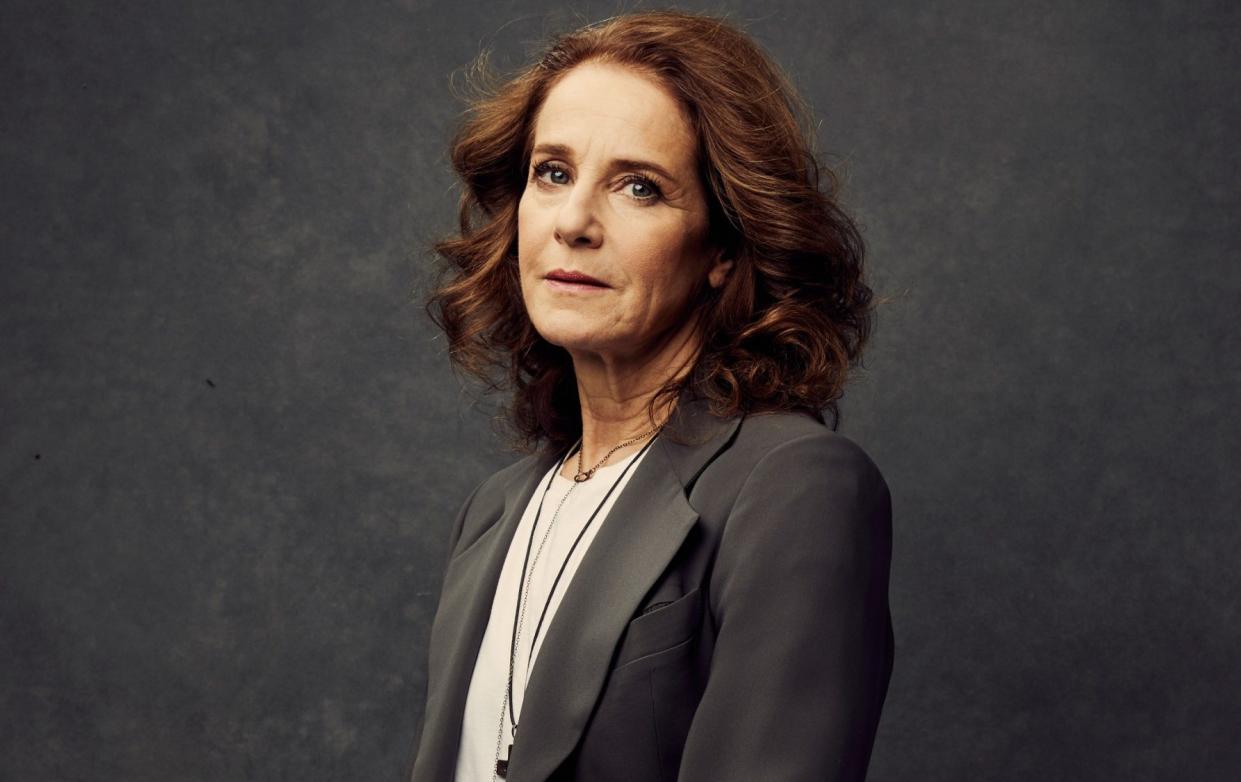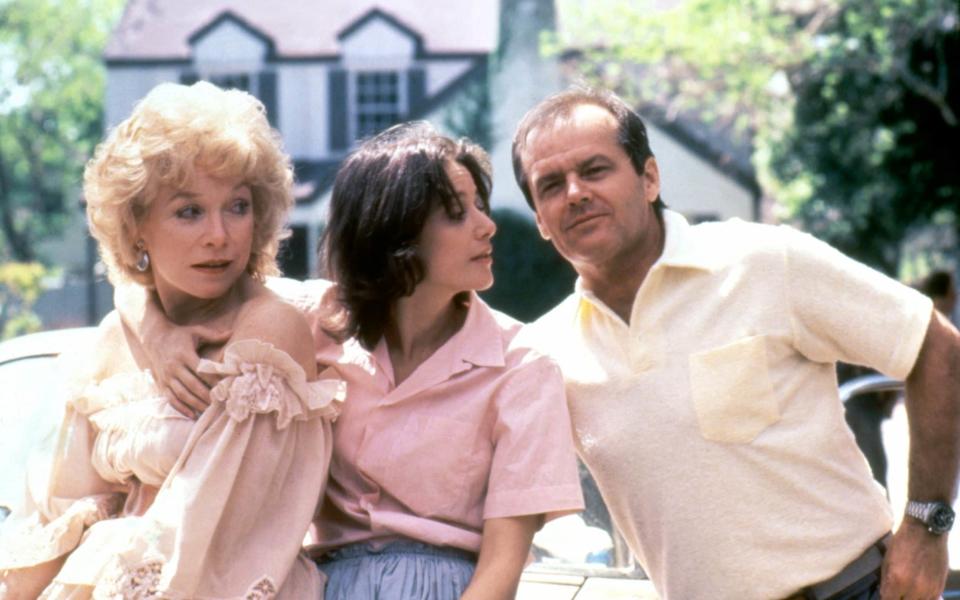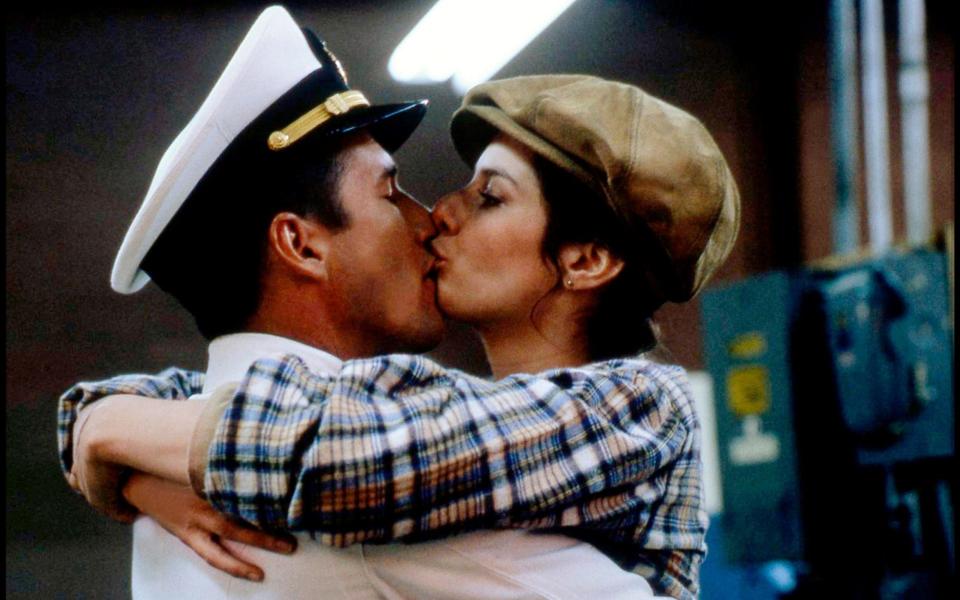Debra Winger: 'In some ways, MeToo has gone ridiculously too far'

Debra Winger, the Oscar-nominated actress who famously quit Hollywood, has a reputation for forthrightness – and she doesn’t disappoint. Did she really call Richard Gere, her co-star in An Officer and a Gentleman, “a brick wall”? “I probably could have come up with something nicer,” Winger chuckles. “[When] I run into him he says, ‘Are you still saying those things about me?’” It was just the once, she protests, but it’s lived on in infamy.
That doesn’t mean Winger, 66, who chats to me over the phone, is pulling any punches. What about tension on the set of another 1980s classic, Terms of Endearment? Shirley MacLaine, who played her mother, wrote in her memoir that Winger farted in her face. “Well, I have never known Shirley to tell the truth about anything,” shoots back Winger, who hasn’t read the book. “If my children heard that story, they would laugh it out of the room since I’m the one that forbids such behaviour.”
She and MacLaine are actually “loving friends”, claims Winger. So why the friction? “If you know anything about Shirley’s life, she had a very, very rocky relationship with her daughter. I think she confused stories about her actual daughter with things that I did.” Besides, it worked out. “No humans were harmed in the making of this film!” she laughs.
In fact, both An Officer and a Gentleman and Terms of Endearment won Winger Oscar nominations, in 1983 and 1984 respectively; quite an achievement for an actress who was not yet 30. But Winger, who was brought up by Orthodox Jewish parents in Ohio, never felt comfortable in the image-driven film industry and shortly after securing a third Oscar nomination for her performance opposite Anthony Hopkins in 1993’s Shadowlands, announced she was leaving Hollywood.
She returned in the occasional indie project, including the acclaimed 2008 film Rachel Getting Married, but only re-entered the mainstream in 2016 with The Ranch, a Netflix comedy in which she played Ashton Kutcher’s bartending mother.
Now Winger is playing another “mum” in Mr Corman, a new comedy drama from Apple TV+ about an unhappy thirtysomething teacher – played by Joseph Gordon-Levitt – who once dreamt of being a rock star. It is a gentle, rather meandering series, with more than the occasional longueur, but never boring when Winger is on screen.

“I am what I used to call ‘relegated’ to the role of mom,” says Winger cheerfully. But Gordon-Levitt, she says, was very collaborative, allowing her to inject her point of view. And that’s clearly apparent in Winger’s layered performance. Although Ruth is a punchy conversationalist, constantly challenging son Josh, she’s vulnerable too, scarred by a difficult marriage and trying to navigate a new relationship. Children like Josh, Winger says, forget that parents “have a life of their own”.
Winger herself has three sons: Noah, with her first husband, the actor Timothy Hutton; and, with second husband Arliss Howard – an actor and director – stepson Sam and son Babe, all of whom have gone into the film business in one way or another (Noah is a documentary maker, Sam is in screen advertising and Babe is a writer). This, Winger says, has given her an interesting perspective on the MeToo movement.
“I don’t feel like it’s settled yet. [The industry] is still in upheaval,” she says. “The plates are shifting. In some ways, it’s pulled ridiculously too far. Part of it is that I’m the mother of three young white males, so I’m looking at things that they’re experiencing, and things that my girlfriends of all different backgrounds are experiencing [and] it hasn’t quite found its steady point yet where there’s room for everybody.”
But, she admits, “I’m a bad one to ask. I always found my way. Is that privilege? It didn’t feel like it at the time, because I felt like I was in very abusive situations, but it was my responsibility to buck up, get strong.”
On the set of An Officer and a Gentleman, she recalls someone knocking on her door and handing her water retention pills to help her lose weight, explaining that she looked “puffy in the dailies” (the unedited footage collected at the end of each day’s filming).

“I was so young I didn’t even know what it was, and I just handed it back and said ‘I’m not taking that,’” she says. “It just sounded ridiculous to me. But somebody else could have really succumbed.”
What gave Winger that confidence?
“I certainly wasn’t taught that by my mother,” she replies. “I didn’t have great men around me, growing up. I just felt strong [enough] to say no to these f---ing assholes.”
Perhaps, she says, it was the terrible car accident she was in aged 17, which left her partly paralysed and blind for several months. “I thought, ‘I could die tomorrow. I’d better just do what I think is right.’”
She applied that to the movie A League of Their Own about the first female professional baseball league. In preparation, Winger trained with the Chicago Cubs for three months, but she left the project when director Penny Marshall cast Madonna, accusing Marshall of making “an Elvis film” – not what she’d signed on to do.
“The studio agreed with me because it was the only time I ever collected a pay-or-play on my contract. In other words, I collected my pay even though I did not play, and that’s very hard to get in a court.”
Winger had met the real-life baseball players and was frustrated that this version didn’t honour them. “As entertaining as [the final film] was, you don’t walk away going ‘Wow, those women did that.’ You kind of go ‘Is that true?’”
The actresses didn’t train long enough to look convincing, she believes, apart from maybe Lori Petty. Geena Davis, who took the role Winger was meant to play, “did OK,” she admits. “I certainly don’t begrudge any of them.” As for Madonna: “I think [her] acting career has spoken for itself.”
The received wisdom about Winger is that she left Hollywood because of the misogyny, but she disagrees. “No. I stopped because I ceased being challenged.” It’s fine to be a supportive wife and mother in real life, but playing it all the time on screen can be “pretty boring”, she sighs. That’s why she wanted her characters to “always have a sense of themselves, however warped”.

She certainly wasn’t idle in “retirement”: she wrote a book, taught at Harvard, did theatre, and raised her children. She is politically active, too, campaigning for tighter gun control; she made a TV film, Dawn Anna, about the Columbine High School massacre. But, she fears, “until there’s money out of politics, there’s no democracy”.
Given her own turbulent experience, what career advice did she give to her children? “They were all forbidden to go into show business, and yes, they are all in it!” she laughs. “But they did get a proper education – I wouldn’t pay for film school.”
As for Winger, she says she never sought the spotlight. “I was ambitious in so far as I wanted to do a great job and express this thing I had inside of me.” Now, at last, she is able to do that on her own terms.
Mr Corman is on Fridays on Apple TV+
